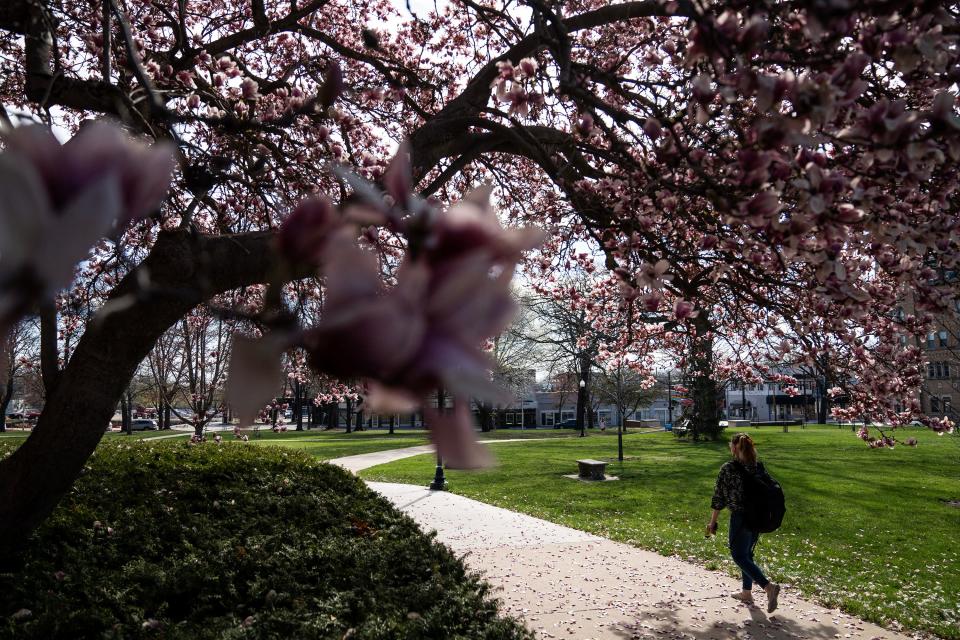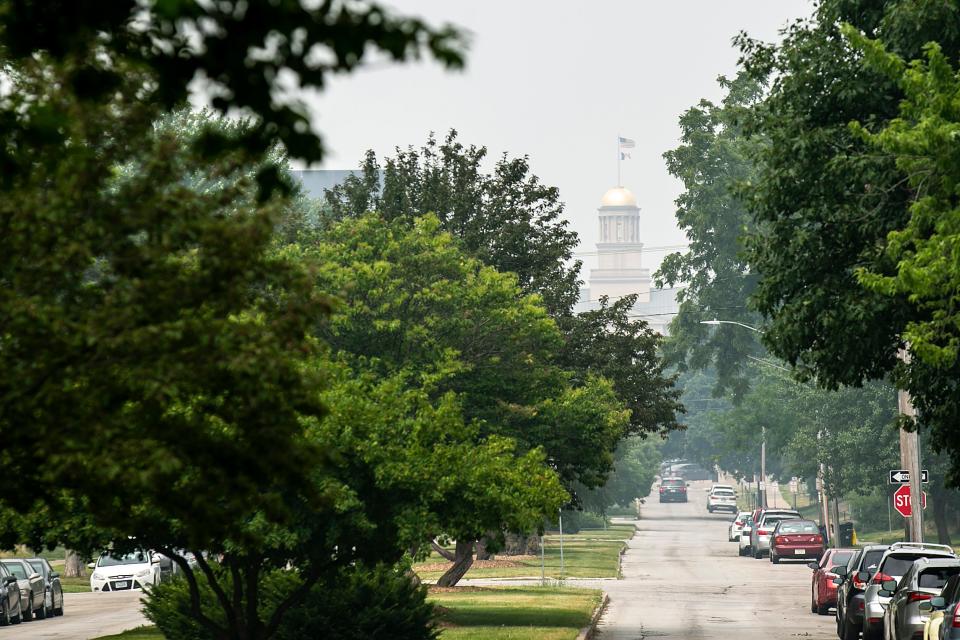Iowa board overseeing public universities mum on Supreme Court ruling ending affirmative action
The U.S. Supreme Court's ruling Thursday striking down affirmative action policies at two universities could change how colleges across the country, including Iowa, conduct their admissions processes.
In a 6-3 ruling along ideological lines, Chief Justice John Roberts wrote that too many universities "have concluded, wrongly, that the touchstone of an individual’s identity is not challenges bested, skills built or lessons learned but the color of their skin."
The nation's constitutional history, he wrote, "does not tolerate that choice."
What Iowa colleges and universities said about Supreme Court ruling on affirmative action
A few Iowa colleges said they would continue to focus on diversifying their campuses.
Drake University, in a statement issued to the Des Moines Register through a spokesperson Thursday, pledged to continue its efforts while details on the court's ruling are revealed.
"While time is needed to completely understand the full implications of the Supreme Court’s ruling and any impacts it will have on our admission process and the awarding of financial aid, the decision will not undermine our commitment to fostering a diverse and inclusive community," the school's statement said.
Drake described its admissions process as "comprehensive," including a path without standardized testing requirements, prioritized recruiting in diverse communities and increased funding for need-based financial aid.
"We will continue to ensure that every step of the admission process is through a lens of equity, respect, and acceptance," the statement said.

Grinnell College's president and vice president for enrollment, in an email sent to campus, said the court's rulings "reverse more than 50 years of racial equity in education and will change how applications for admission are evaluated at colleges and universities across the nation."
It cited passages from two justices' dissenting opinions in the case.
The college has been "reviewing a range of alternatives to considering race as a part of our holistic admission process," and is "in a strong position to analyze the decision" and "move forward given the court's ruling," the administrators wrote.
"We remain more committed than ever to being a college beholden to those principles and practices that foster a multi-racial democracy as we move forward in Grinnell’s educational mission," wrote president Anne F. Harris and vice president Joseph Bagnoli, Jr.
Iowa Board of Regents says admission index does not consider race
Iowa's Board of Regents declined to comment on the ruling or its impact. Iowa State University also declined.
The University of Iowa said in a statement: “As a leading research university, Iowa benefits from recruiting and retaining individuals from diverse backgrounds and experiences. So, the university will continue to focus on creating a campus culture that provides everyone the opportunity to contribute and reach their full potential.”
A spokesperson for the University of Northern Iowa said the school was awaiting further guidance from the Board of Regents on diversity, equity and inclusion initiatives. The court's ruling would "not have an impact on undergraduate admissions" at UNI, according to a statement from the school.
They all referred to the board's Regent Admission Index, which is used for student enrollment at each of Iowa’s three public universities. It does not consider race or gender.

The index leans on student performance and testing ability, which the Board of Regents believes "strongly predicts success" at each of Iowa's state schools.
“The RAI combines factors that strongly predict success: standardized test score, high school cumulative grade point average, and the number of completed high school core courses,” senior communications director Josh Lehman said Thursday on behalf of the Board of Regents.
The RAI calculator asks prospective students to enter their ACT or SAT in addition to a cumulative grade point average. It also takes into consideration high school coursework in math, English, natural science, social studies, world languages, and a few other courses specific to each university.
Non-Iowa residents are not eligible for the Regent Admission Index and can directly apply to each of the state’s three universities through the school’s application process.
Likewise, the University of Iowa adheres to specific criteria for their professional and graduate programs, which the school said they will readdress after today's ruling.
"The Graduate College and Office of General Counsel will review the ruling and provide guidance on best practices for recruiting and admitting students," Jeneane Beck, UI assistant vice president for external relations said.
Lehman added that the board is satisfied with the role the long-standing index has played in student admissions.
How diverse are Iowa's colleges and universities?
As of fall 2021, 25.4% of the University of Iowa's enrollment included students of color, according to the university's website. That includes 7.8% international, 7.4% Hispanic or Latino, 5.1% Asian-American and 3.1% Black students.
Of the university's 1,300 tenured and tenure-track faculty, 23% are minorities.
Iowa State University's total student population includes 16.3% "multicultural" students as of fall 2022, according to the school's statistics, which does not account for international students.
At the University of Northern Iowa, 15.9% of the student population, including international students, belong to non-white minority groups as of fall 2022, according to school data.
Drake University's undergraduate population (not accounting for international students) includes 6% Hispanic and Latino, 5% Asian, 4% Black and 4% multi-race or ethnicity students, according to university data. Its faculty is 7% Asian, 3% Hispanic or Latino, 3% Black and 3% multi-race or ethnicity.
About 26% of students at Grinnell are students of color from the U.S., according to the school's publicly available diversity information; about 18% are international students.
USA TODAY contributed reporting.
This article originally appeared on Des Moines Register: Private Iowa colleges vow to seek diversity after Supreme Court ruling

